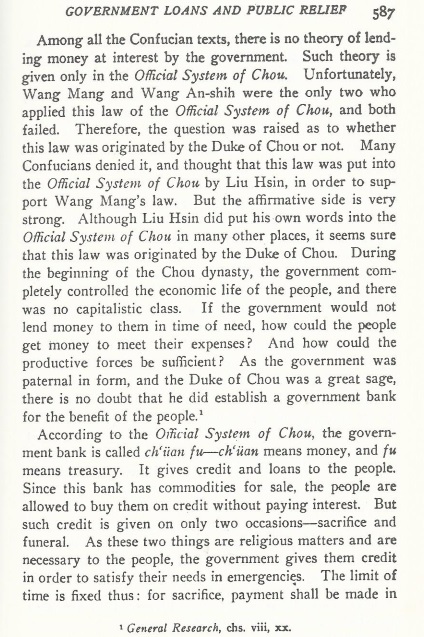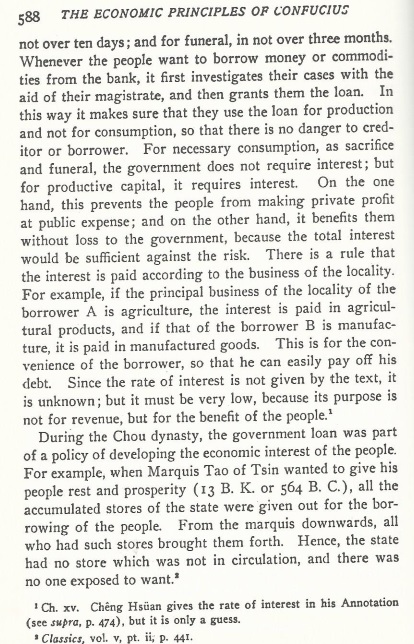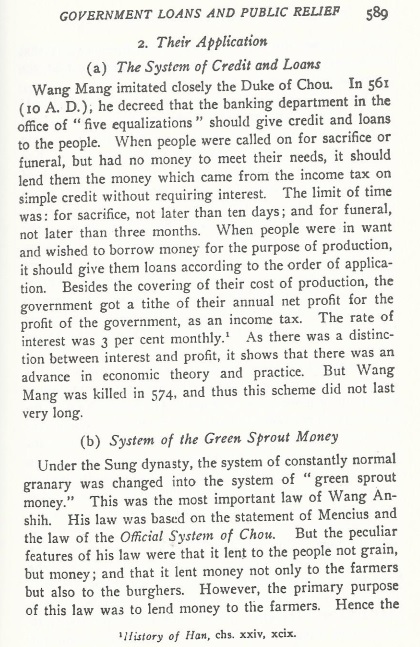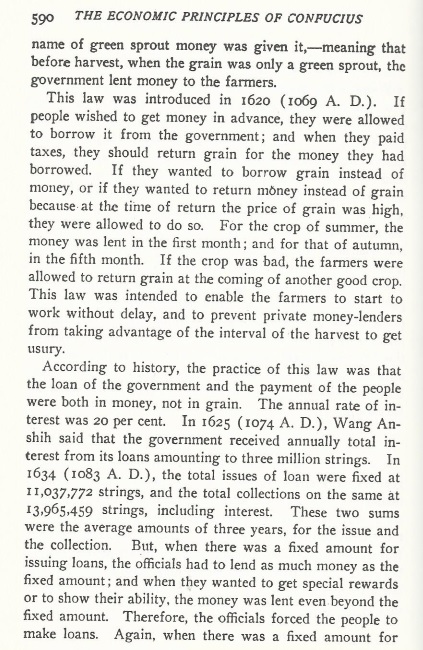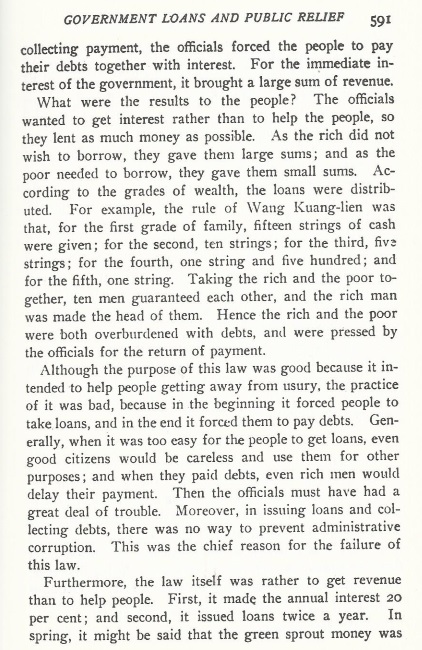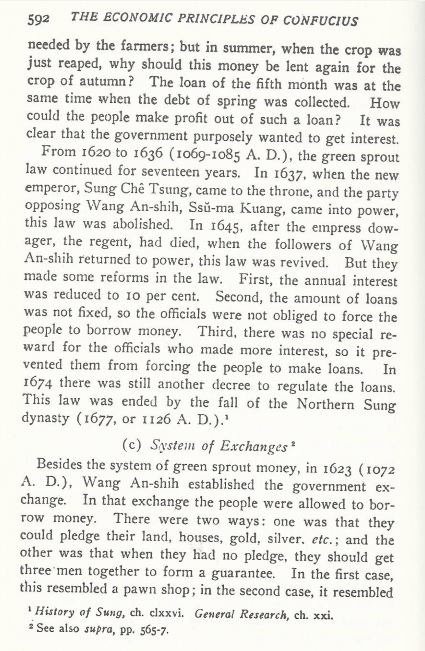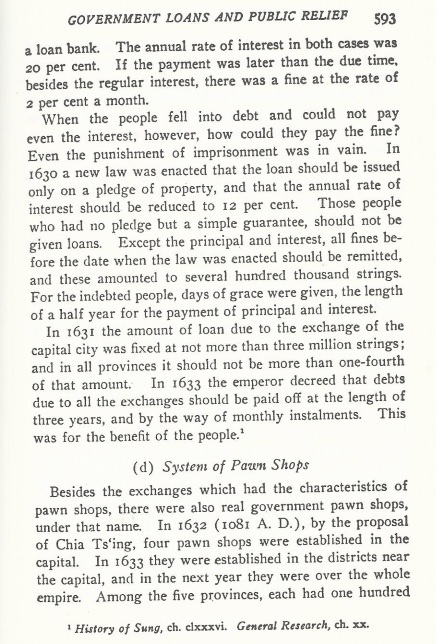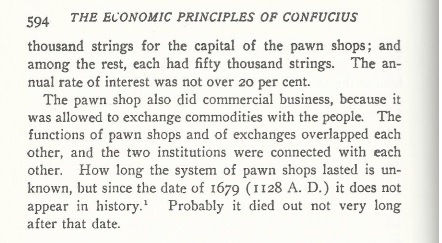-- From The Economic Principles of Confucius and his School, Book VIII, Chap 31
EDITOR’S NOTE: Over a century ago, a Chinese scholar, named Chen Huan-Chang (陈焕章), wrote the book in English The Economic Principles of Confucius and his School as his PhD thesis at Columbia University and had it published in the USA. The book has had great impact on several generations of masterly Western scholars in economics and economic policies in the West. For instance, the idea of changpingchang (常平仓, or regulative storage), which had been practiced for thousands of years in ancient China and was mentioned in the book, was adopted by the US parliament in its 1933 Agricultural Adjustment Act, sponsored by Henry A. Wallace (USDA secretary, 1933-1940), who had learned of it from the said book.
As the book is focused on only one of the several major ancient Chinese schools of thought, some other essential content in traditional Chinese economics, therefore, could not be covered, such as those of Guan Zhong (管仲), the Legalist chancellor and reformer of Qi state and, according to the author of this book, the first person who had put forward a complete system of thought on economics. However, many important ideas and practices discussed in the book had actually been shared by some other major schools of thought. That of changpingchang mentioned above is one typical example.
While this book is a comprehensive treatment of the topic as indicated by its title, whole six chapters are devoted to “socialistic policies” in ancient Chinese economy, which practice might not be expected by contemporary readers. We will post excerpts from these chapters in installments. Hope it will shed some light on how today’s world economy should be reformed.
PREVIOUS INSTALLMENTS
Socialistic Policies of Ancient China [1]: The Tsing Tien System:
(I) History of the Tsing Tien System
(II) The Tsing Tien System of Confucius
(III) History of the Destruction of Tsing Tien ... VII. Conclusion
Socialistic Policies of Ancient China [2]: Monopoly:
Socialistic Policies of Ancient China [3]: Exclusion of the Ruling Class from the Economic Field
Socialistic Policies of Ancient China [4]: Government Control of Demand and Supply (1), (2)
Socialistic Policies of Ancient China [5]: Government Control of Grain (1), (2)
THE TEXT
.jpg)
